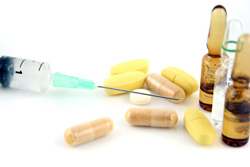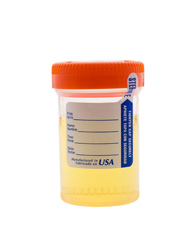Popular Links
- Steroid Use in High Schools
- Street Names for Steroids
- Talking To Your Child
- Steroid Statistics
- How Anabolic Steroids Work
- How to Spot a Steroid User
- Dangers of Steroid Abuse
- Pictures of Steroids
- Side Effects of Steroids
- Steroid Abuse in Sports
- Steroid Abuse Videos
- Steroid Facts
- Steroid Myths
- Steroid Testing
- Steroids and the Law
- Steroids and Women
- Testosterone Injection Videos
- The Ethical Aspect of Anabolic Steroids
- True Stories of Steroid Abuse
- Bodybuilding Steroids
- Coming Off Steroids
- Peer Pressure and Steroids
- Identify Anabolic Steroids
- Steroids 101
Steroid Resources
- Athletes and Steroids
- Best Legal Steroids
- Best Steroids
- Bodybuilders on Steroids
- British Dragon Steroids
- Cheap Steroids
- Cutting Steroids
- Deca Steroids
- Dianabol Cycle
- Dianabol Reviews
- Dianabol Steroids
- Effects of Steroids
- Fat Loss Steroids
- High Testosterone
- Horse Steroids
- Illegal Steroids
- Increase Testosterone
- Low Testosterone
- Mexican Steroids
- Muscle Building Steroids
- Natural Steroids
- Oral Steroids
- Performance Enhancing Drugs
- Prohormones
- Safe Steroids
- Steroid Cream
- Steroid Encyclopedia
- Steroid Injections
- Steroid Pictures
- Steroid Pills
- Steroid Side-Effects/Side-Effects of Steroids
- Steroid Stacks
- Steroid Tablets
- Steroid use
- Testerone
- Testosterone Injection
- Testosterone Replacement Therapy
- Women on Steroids
Steroid Profiles
How To Talk To Your Child About Steroids
 The first thing parents are going to have to admit to themselves is the possibility their child could be abusing steroids or any drug for that matter. Denial and wishful thinking can quickly lead a family down the path to destruction. How many times have we all heard the stories of parents who had no idea what their kid was into or who harbored the “not my child” mentality. Getting past this hurdle is crucial to identifying problems and ultimately rescuing a child from a potentially dangerous mistake, a mistake that could cause them serious harm or even death down the road.
The first thing parents are going to have to admit to themselves is the possibility their child could be abusing steroids or any drug for that matter. Denial and wishful thinking can quickly lead a family down the path to destruction. How many times have we all heard the stories of parents who had no idea what their kid was into or who harbored the “not my child” mentality. Getting past this hurdle is crucial to identifying problems and ultimately rescuing a child from a potentially dangerous mistake, a mistake that could cause them serious harm or even death down the road.Now that we have addressed that issue, and hopefully gotten past it, we need to identify the signs that can prove your child is abusing steroids.
EARLY SIGNS OF STEROID ABUSE
- One of the most obvious signals of steroid abuse is sudden muscle growth. Unusually fast bulking up, especially in the shoulders and neck region, and across the chest and biceps often indicates steroid abuse.
- Another easy sign of steroid abuse is an unusually significant break out of acne on the face, or even more common, on the upper back across the shoulders.
- Next, look for mood swings or other shifts in behavior outside the norm such as a violent or combative attitude.
- Some changes may be a bit more difficult to spot, and may need a bit more observation on your part.
- Get involved in your child’s life, but don’t be pushy. Kids can sense when you’re boxing them in. They will make it harder for you to help them if they are distrustful or decide to close you out.
- Pay attention to their clothes and hair. Look for a dramatic change such as shaving their head or drastically changing their style of dress.
- Is your child’s circle of friends changing? How is he or she relating to friends and family lately?
- Often, the signs are subtle. Using mouthwash or excessive brushing due to foul breath can be an indicator of steroid use.
- Paranoid behavior may become evident in daily activities. They may become more secretive and closed off. For example, becoming irritated by an adult’s presence in their room or hiding their internet searches and interests, can be an indicator that something is amiss.
- Here is a no-brainer that parents can easily miss if they aren’t tuned in to their child’s interests. If your child talks about steroids or asks questions about steroids or even work-out supplements, it could be an early indicator that you need to pay more attention to what’s going on in his or her life right now.
 WHAT TO DO FIRST
WHAT TO DO FIRST No matter what’s going on in your kid’s world, as a parent, you have to understand and respect the generation gap. It isn’t easy to stay connected to your child’s interests and concerns, but with a little effort, you can stay informed.
You need to understand the basic needs of every child. You were a child once. What were you concerned about? Odds are, you wanted to be accepted. You wanted to look your best. You were susceptible to peer pressure. You wanted to get the girl or get noticed by the popular guy. Things haven’t changed all that much since you were a kid. The difference is kids today have an access you never had. Drugs are easily obtainable, and steroids are no exception. Now, with internet access in almost every home in America, kids are exposed to every market and consumer good on the planet. With minimal resourcefulness, a kid can discover, research and order steroids and within days, have them in hand.
In this world of instant gratification and quick fixes, steroids are the ultimate esteem builder and they are readily available to children who are willing to ignore the serious side effects for short-term fulfillment. You have to be prepared to deal with that. You have to be ready to confront your child before things get out of hand.
Children, for the most part, crave a role model. You can be one or you can allow somebody else to. You have to be a formidable presence in your kid’s life because there are a million other influences pulling at him. From muscle magazines to MTV, the physical is praised over all other virtues. Win at all costs is the mantra of today’s athletes. And, though the dark underbelly of steroid abuse is beginning to see the light of day in the news, nothing has really changed. Steroid abuse is on the rise.
The key is to promote your child’s self esteem as early and often as possible. Encourage a healthy lifestyle and participate in it. Establish a healthy body image for your child by using positive words that instill confidence. Compliment your child often.
By laying down a solid healthy foundation early on, you can head off a lot of problems that can come up including the choice to abuse steroids.
WHAT TO DO NOW
Now that you’ve determined your child may be abusing steroids, where do you go from here?
There are no easy answers so let’s start with the serious.
 SERIOUS STEROID ABUSE
SERIOUS STEROID ABUSEIf you are pragmatic and able to obtain a urine sample from your child, do it. It is probably the easiest way to determine the truth. If you go this route, understand that trust and communication with your child will very likely be damaged. However, if it’s come down to intervention at this point, then it’s about your child’s safety. It’s no longer about how popular a parent you are. You may then want to talk to your child about the seriousness of abuse. Take him or her to the doctor for the urine results. Let the doctor throw out a few case studies on how bad it can get, or at the very least present some healthy alternatives to steroids with diet and exercise ideas. But let’s not be naïve here. The need to overcome perceived shortcomings is very powerful. At first, your child may not hear a word any of you are saying, but keep trying. You are as much an influence on his or her life as the muscle mags and tv shows. You will be the thing that makes a difference. When your child doesn’t make wise decisions about his or her health (and most kids don’t), you have to step in the gap. Bottom line.
SOMETHING IS AMISS
If your concern is less immediate or perhaps you haven’t seen many of the serious signs, but you sense something is changing, continue to pay attention. Look for the less obvious signs mentioned above. Drop subtle hints that let your child know you realize something’s up. Talk about steroids openly. To do this, obviously you are going to need to do a little research. This website has thorough information covering all aspects of steroid abuse and you probably aren’t going to have to search too deeply to be as informed as your child. Most likely, your child has gotten bad information, anyway. You can correct this if you get informed yourself.
Getting steroids out in the open may solve the problem. The guilt factor is introduced and some kids find it difficult to continue abusing when they’re aware you know about it. But don’t assume this is so. Continue to watch for the signs.
Ultimately, there are no hard or fast solutions to this problem, but the most important way to lessen the chances your children will abuse any drugs is to stay involved in their lives, no matter what. You can head off many adolescent problems just by being available, helping raise their self-esteem and heading off unrealistic self-image expectations and unworthy goals.

